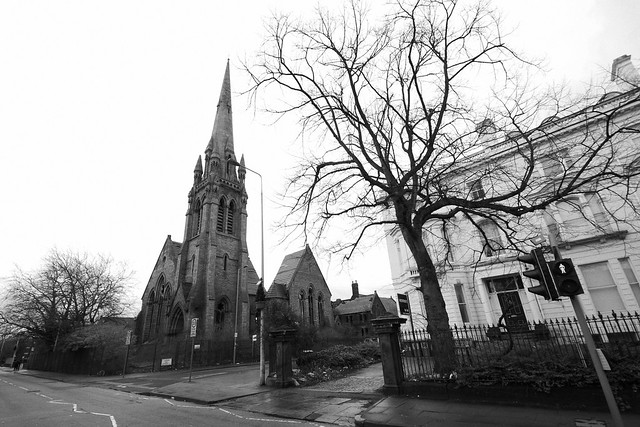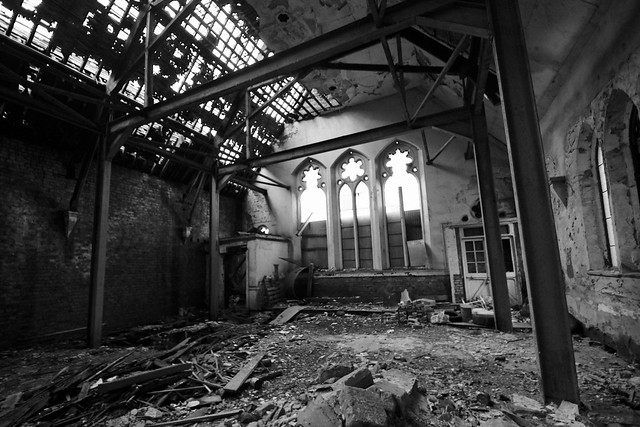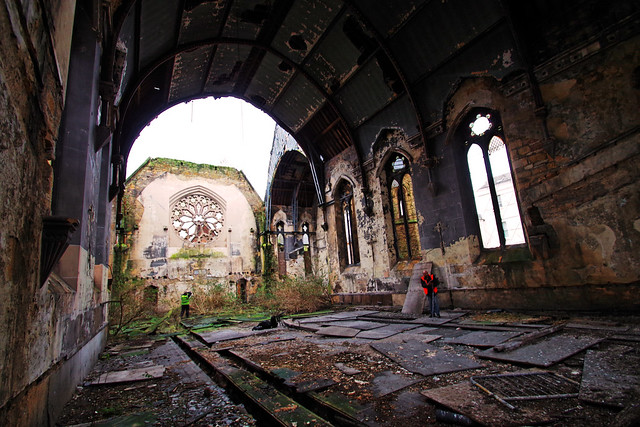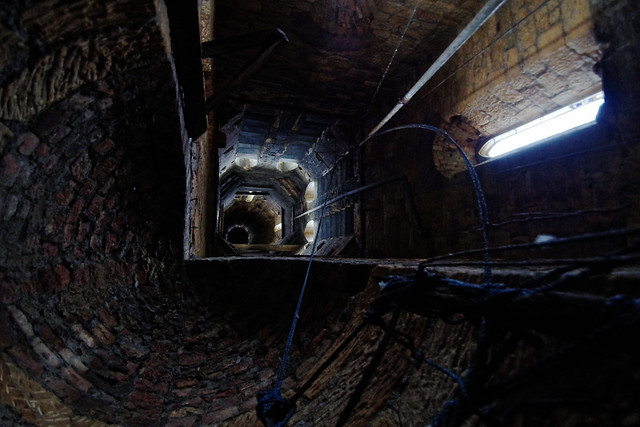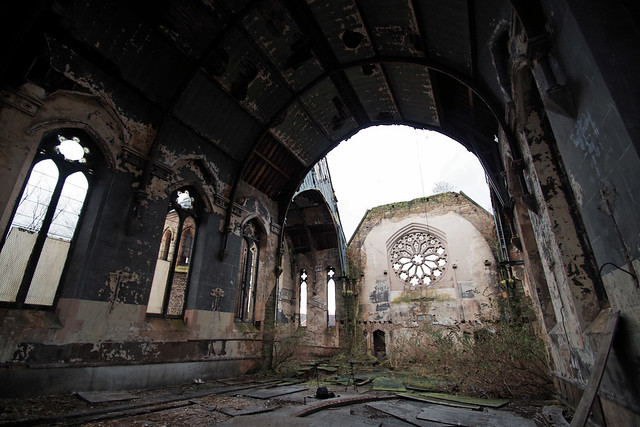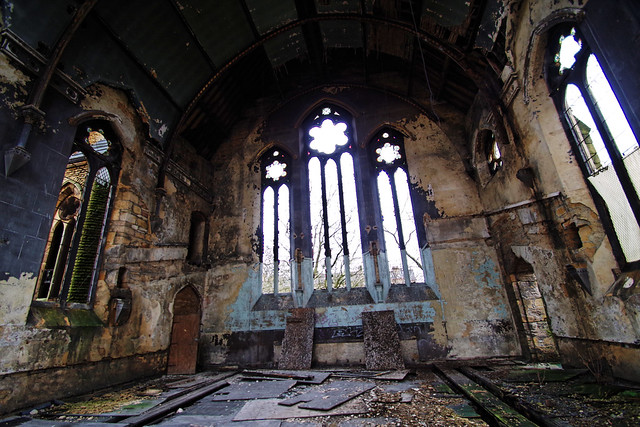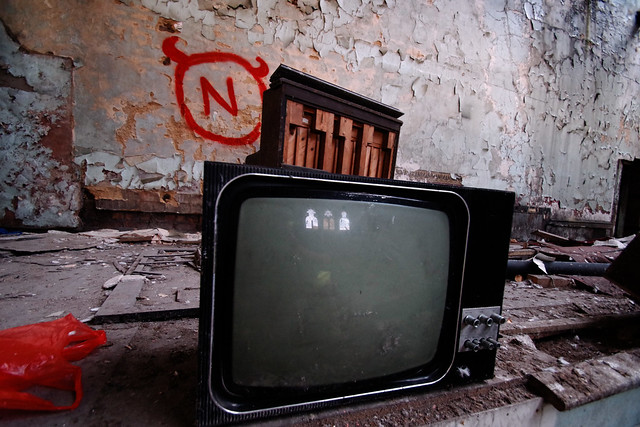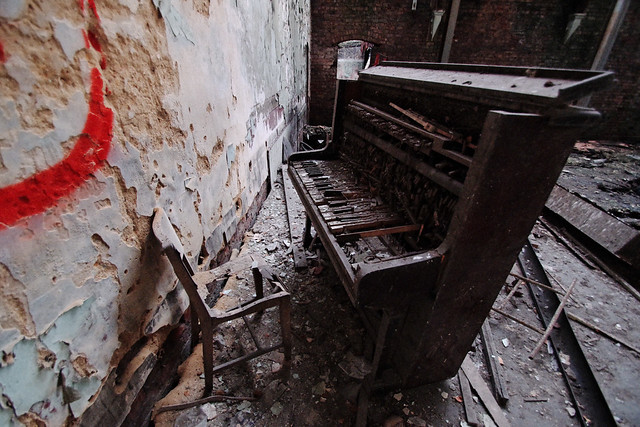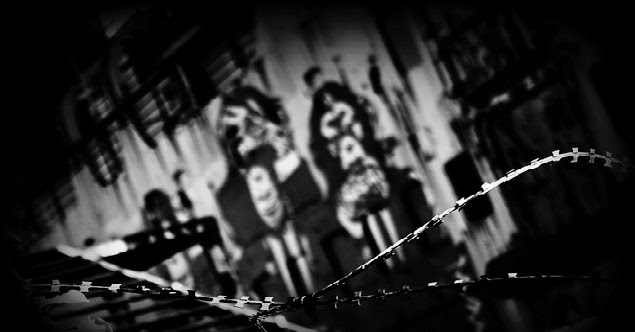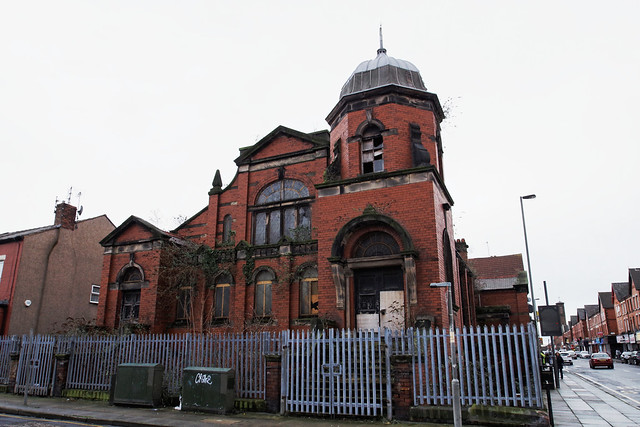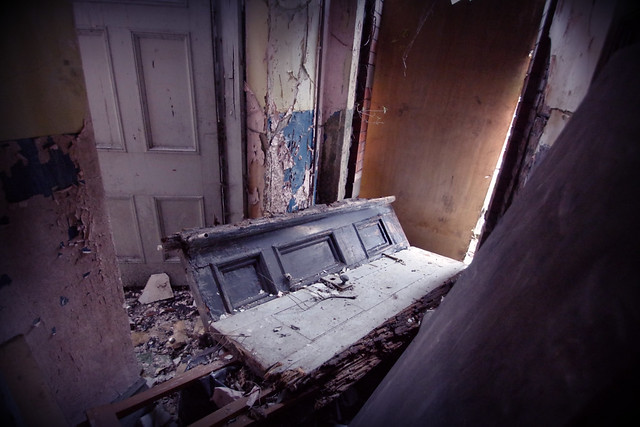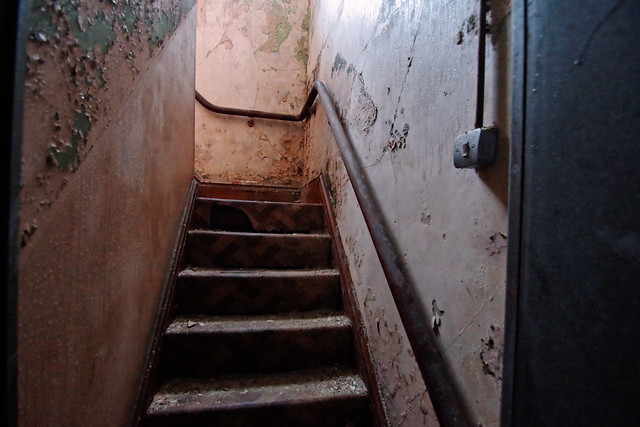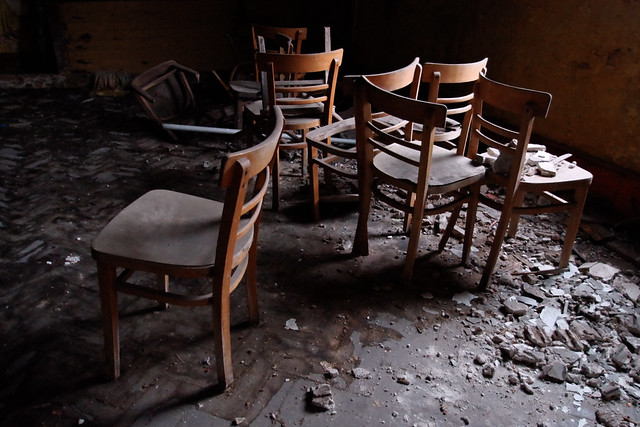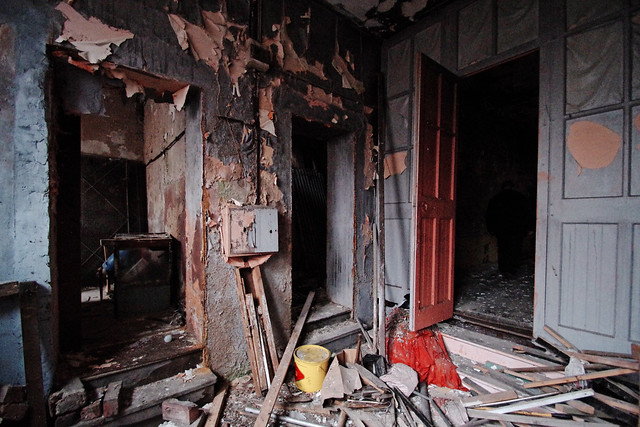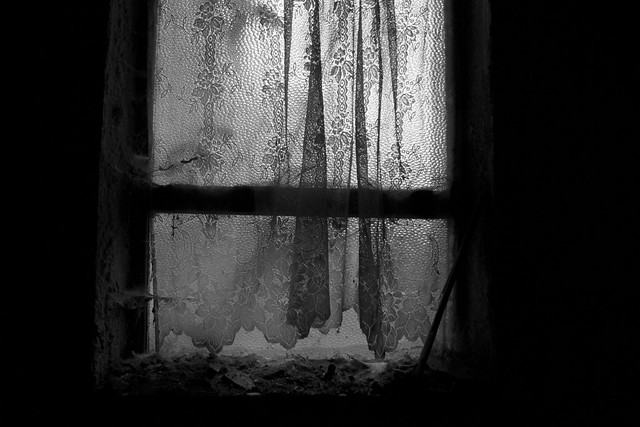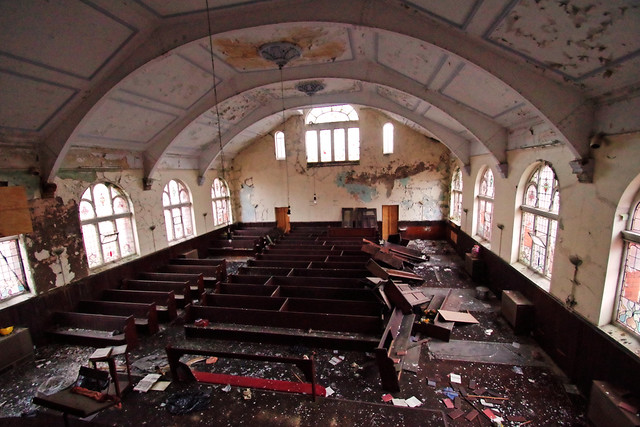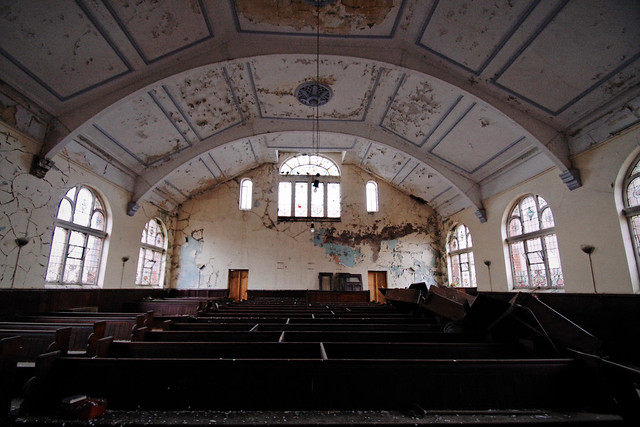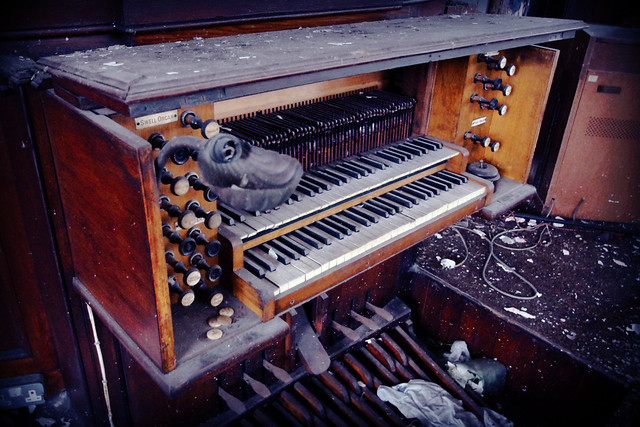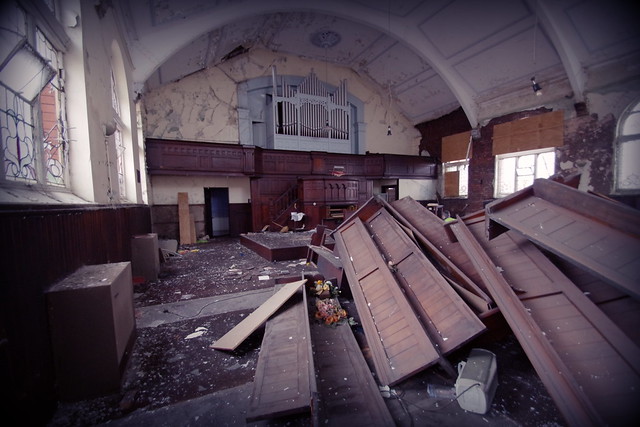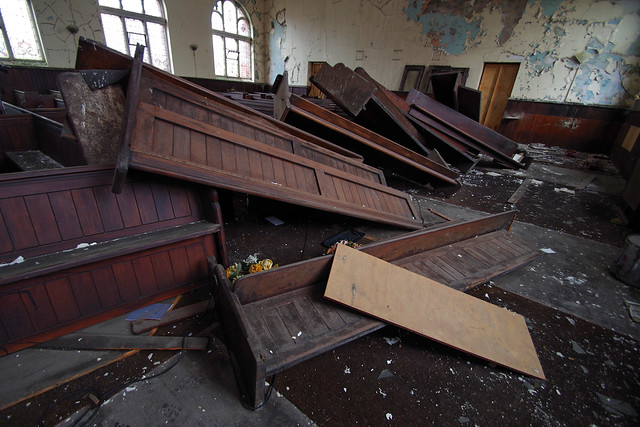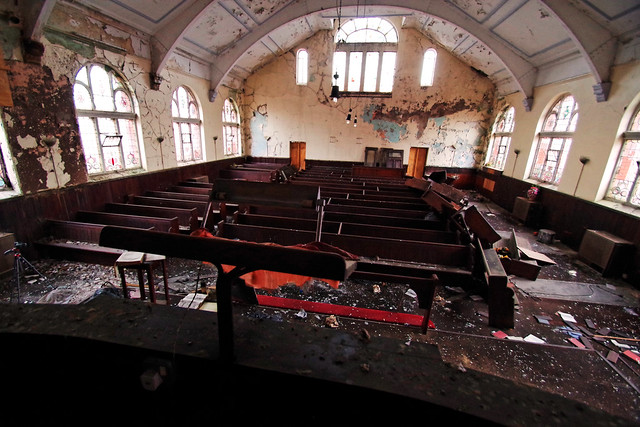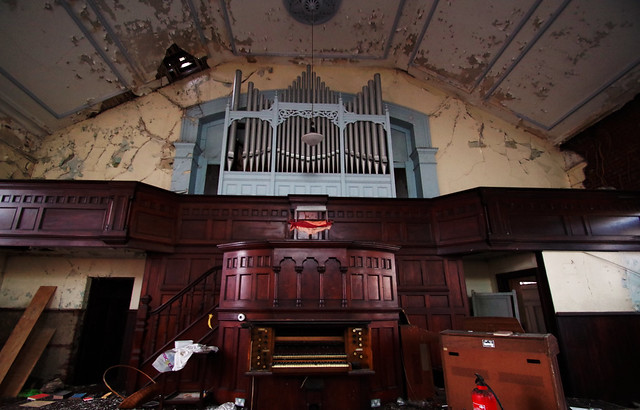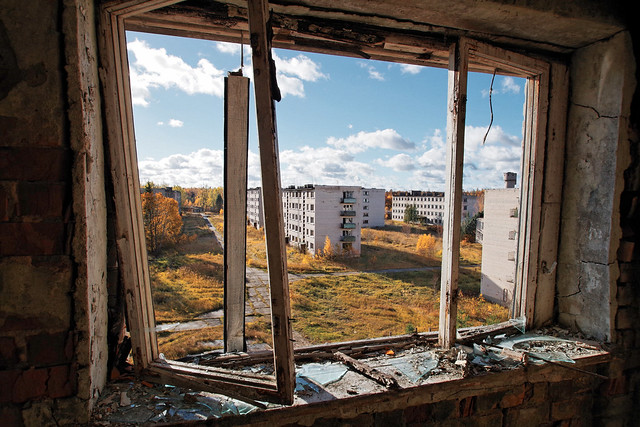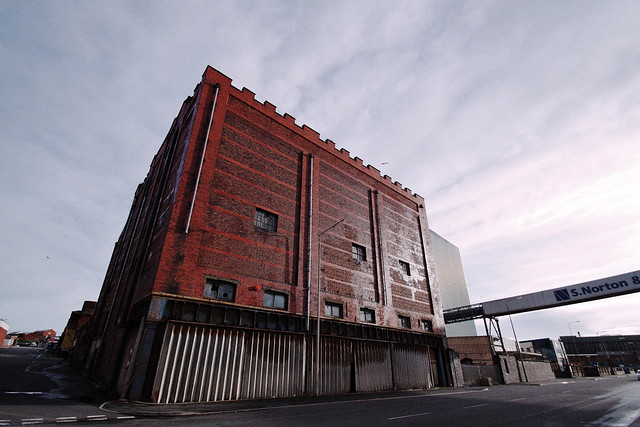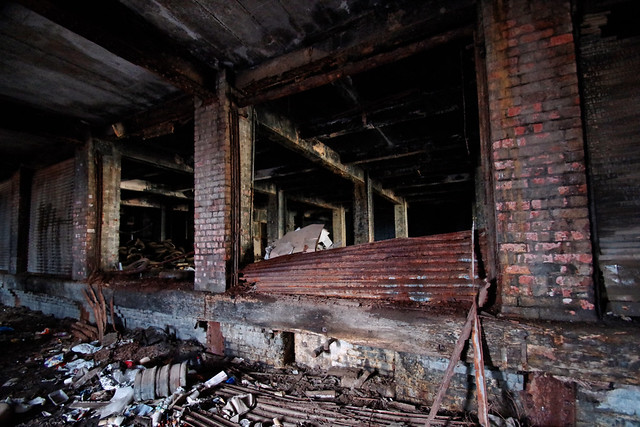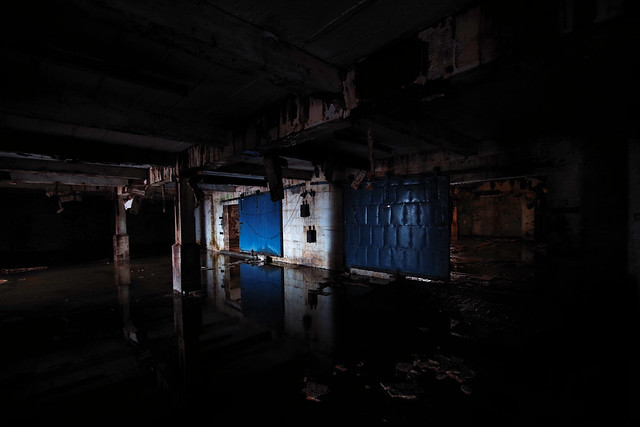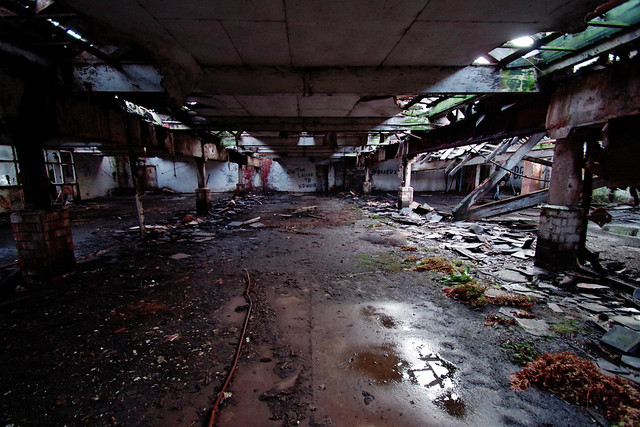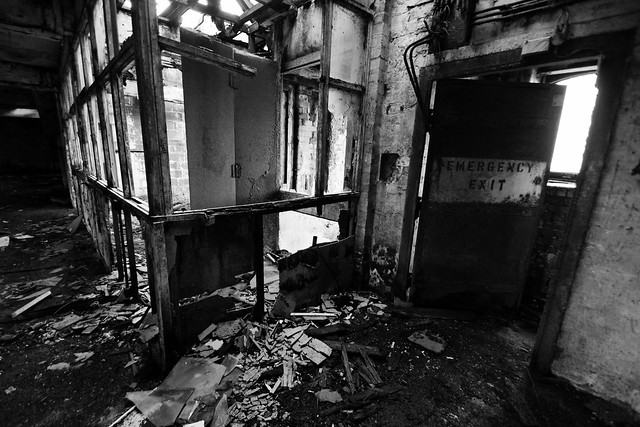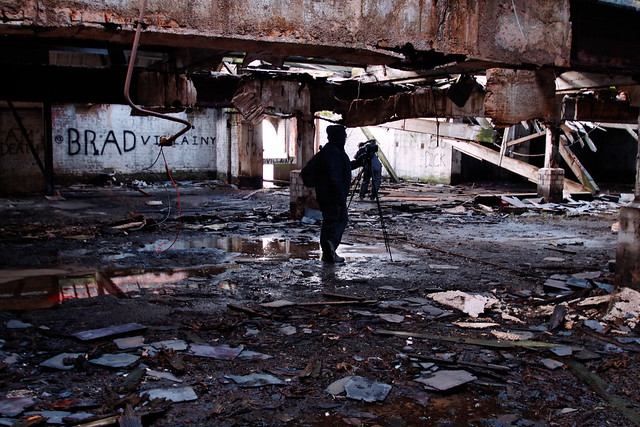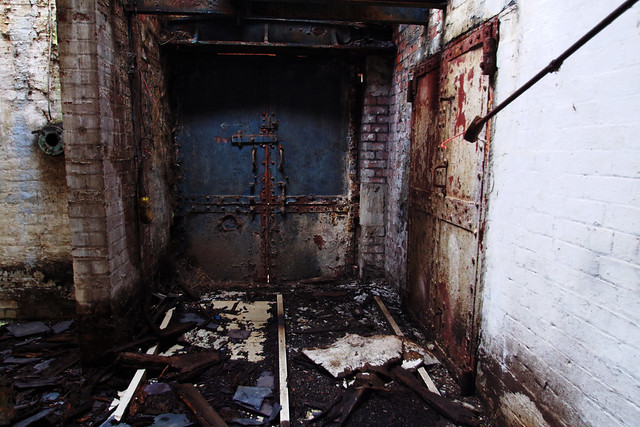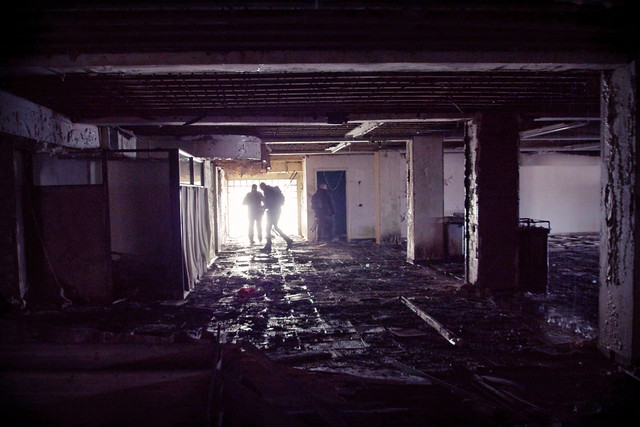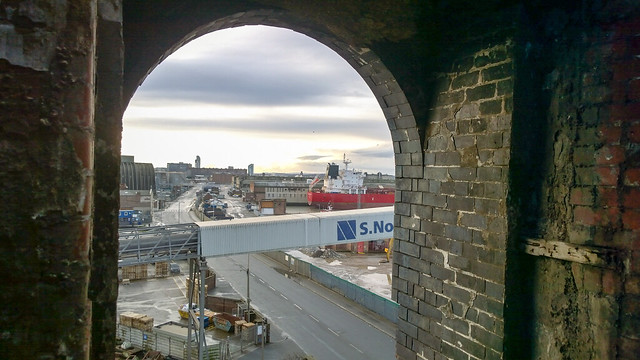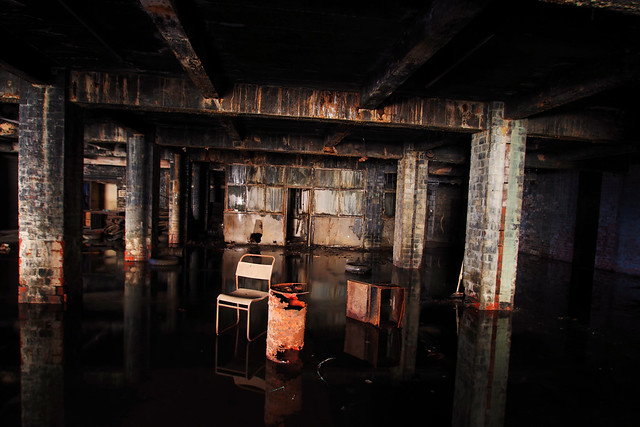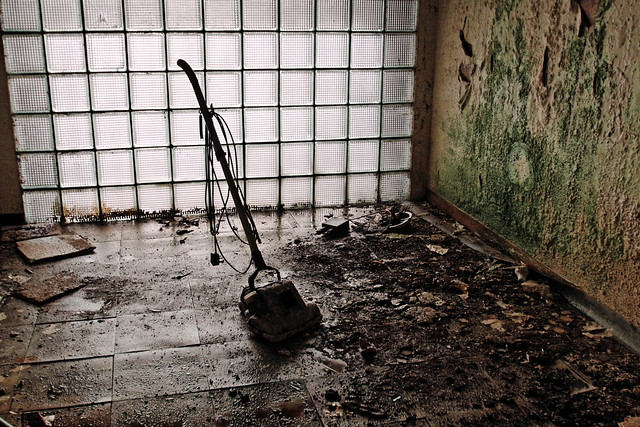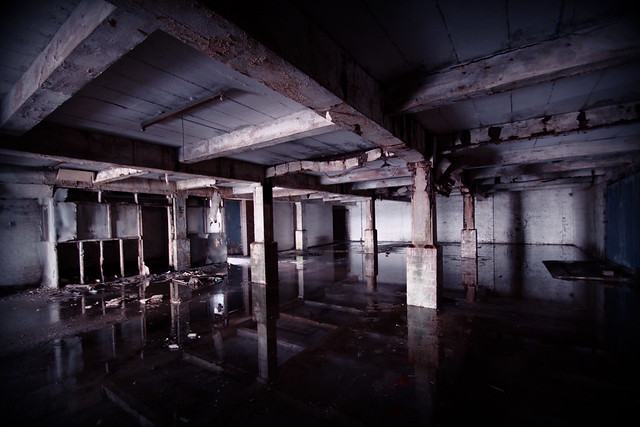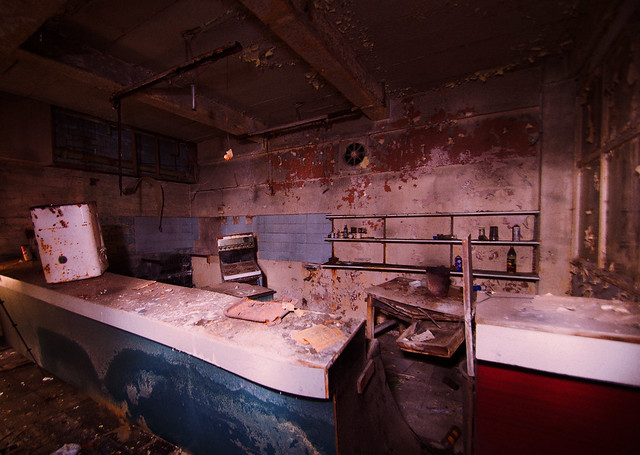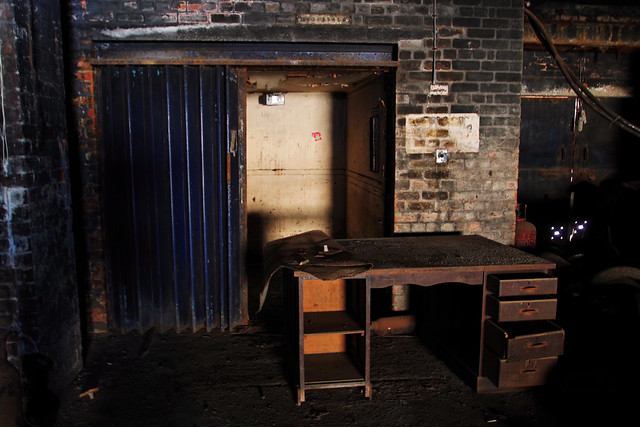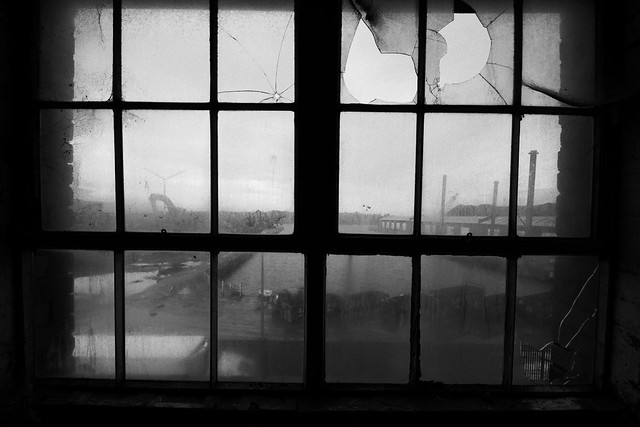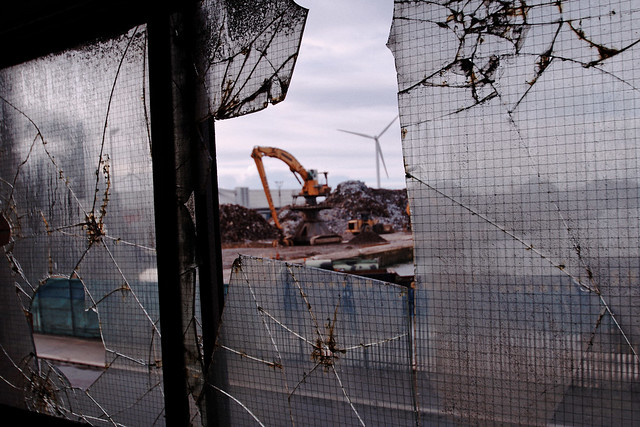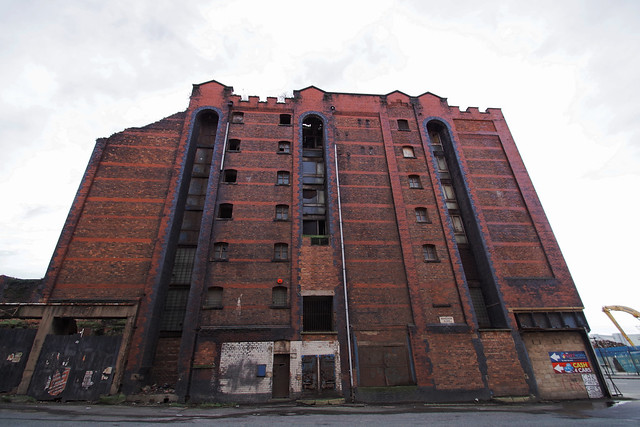Every now and then, I drag poor Tin Dog and any other fools I can find to foreign lands such as
Chernobyl for a bit of "Boys Own" and an explore.
Well, over again to the ever wordy guest writer Tin Dog....
Latvia and Lithuania 2015
The Plan
For the first time ever there was a plan. We even had printed cheat sheets, lest we fell through the looking glass and got split up.
Tbolt, Frag and I were to fly to Riga, pick up a car and meet
Darmon, then drive through Latvia and Lithuania whilst behaving sensibly at all times.
We had an itinerary. We had two satellite navigation devices that frequently disagreed. We had short memories of debacle’s past.
Frag had packed Fish and Chip snacks and a travel plug.
We’d only met Tbolt once, briefly, in a horrible coffee chain. Darmon was travelling from Bulgaria to meet us in a junkyard.
What could go wrong?
Riga 1
Arriving at the first hotel in Riga, Frag was sure that the suit of armour in the entrance was a good sign. He likes a suit of armour, does Frag. I daren’t ask why.
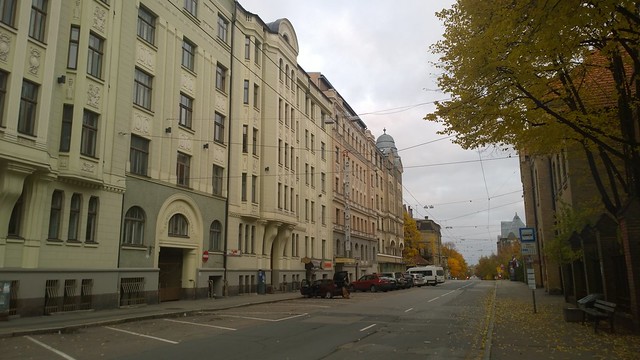
We had a quick beer in the bar next to the hotel and decided to push out into party central. We didn’t walk far. We didn’t need to. It was soon clear that this part of Riga shuts early on a Saturday night. It was cold, dark and grey and lit by sickly neon.
The streets were mostly empty and lifeless by eleven, save for litter being collected in corners by a light, cold wind. The town with no cheer, where occasional well wrapped Latvians scurried home to their city flats.
A half hearted search uncovered a tiny, unfriendly bar, used by surly, vodka smeared youths. They drank shots and stared a lot. They wore quilted jackets and angry, creased foreheads.
We sank a couple of strange beers and retired for an unnecessarily early start.
Take the Wheel
The gears gave a metallic grind and shrieked as they sheared. The car lurched and we pulled away through the car park almost skimming a large, arrogantly parked Mercedes.
Tbolt and I had, kindly, allowed Frag the first go at not getting us all killed in a car accident. I don’t think that Frag has had such a thrilling hour in a long time. Not one he’d want to repeat, anyway.
To make it easy, Frag had set his sat nav on the case. Take me to the junkyard. It was a high tech solution to dilute our cluelessness.
The sat nav was set to ‘surfer dude’ voice to annoy Frag’s daughter back home. We found him annoying in Latvia too. Corey had lost his ready audience and our good will whilst we slid, tentatively, into moving airport traffic. If he was real, he’d have to be able to take a punch, would Corey. It became hugely irritating immediately.
“Turn left, dude! That’s your left, dude, not mine!”
There was no left turn and Frag pressed his face into the windscreen in concentration.
Corey delivered every line as a Californian exclamation. Even in our panicked state, surfer pseud became annoying.
‘Make a u-turn. Don’t use the handbrake, dude!’
Frag was doing steady work through all this distraction, unlike the sat nav. It sent us in an ever more annoying series of circles, through empty housing developments, farms, down tracks and around and around ring roads.
We went around so many times that pedestrians, minding their own business, began to think we were stalking them.
An elderly man on an empty road broke into a staggering run on our third time around in twenty minutes. Maybe he was just late?
We were trying to find an aircraft junkyard on the outskirts of Riga airport. Where else would you meet an Englishman living in Bulgaria?
Frag, in an understandable state of fizz, parked up on a long straight road next to the junkyard. He’d had enough excitement. He almost threw the keys at us, thinking his ordeal was over. He was immediately confronted by the police pulling up along side us. They shouted and pointed and frowned.
“Move or we’ll arrest you.” was my guess. Statements like that don’t need interpretation.
Reigning in the frustration, Frag recovered his inner chap and found the nearest available car park. We parked up in a car park so vast that we kidded ourselves we would remember where we left the car, without bickering.
One Man’s Junk
It was a cold, damp autumn morning to be poking around a junkyard. We rang the bell and a guy with a greying beard, who looked like he might hang around in a junkyard, opened the gate to his junkyard.
My colleagues unleashed their cameras. Admittedly it was a hell of a junkyard. A Soviet Top Trumps of a spread.
The helicopter in the centre was a troop carrying attack craft. Several sizes larger than a really big elephant, it could hold 5 crew and 65 to 90 troops. It was enormous. The rotors drooped under their own weight. It had stubby wings.
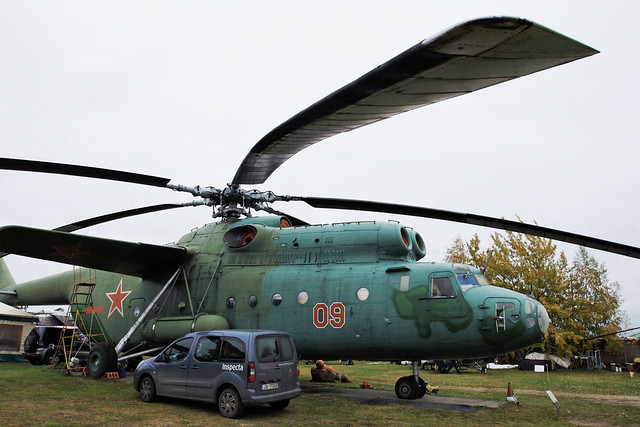
Tbolt commented, “Can you imagine these rotors turning and the thing taking off?”
It must have been astonishing and frightening and exciting and deafening.
We climbed the rickety ladder and squeezed through the thin aisle, between a Cold War car boot sale of Russian uniforms, (really) great coats, boots, fur lined flying jackets, reel to reel recorders and all of it smelled of damp decay. The cockpit was tiny. Two tiny chairs with two levers, one each. A knee bruising dash of dials completed the cramped cockpit.
Nearby, MIG fighters were ranged in a line. Broken, supply helicopters and bomb casings lined up for inspection. Sleek, point nosed fighters and those swept wing reconnaissance planes that flew at the edge of space sat dripping dew and rust. All the machinery that we imagined would be coming over the horizon very soon, in the 1970’s and 80’s.
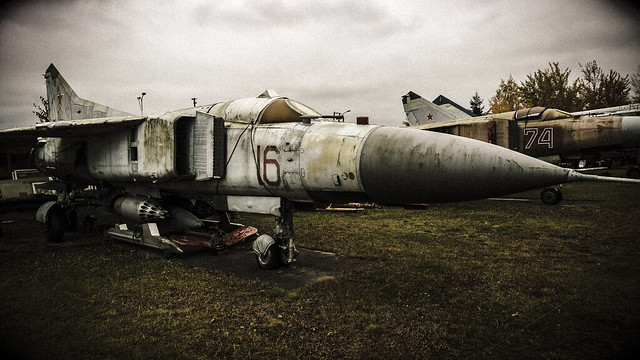
The war ware from the Union of Soviet Socialist Republics; redundant, dated and slowly rusting into muddy ground. The villains in every film I ever saw as a child. It’s what we were told.
The gate buzzer sounded and the bearded keeper of this compound swung open the gate. Frag and a hung-over Darmon exchanged a handshake and muttered. The last of us to arrive was on board.
Searching For Skrunda
To the west of Riga hides an abandoned Soviet city. Skrunda One was a military town built in the 1960’s and abandoned by the Russians in the 90’s. The town only existed to service two enormous RADAR installations. They were exploded thoroughly, before the Russians finally left the town to itself in 1998.
Our sat navs kept pointing out a right turn onto a track, in 2 miles, in 1 mile, in 800 yards. The road was straight and empty. No turnings.
The Latvian autumn was an art installation especially for us, framed by the windscreen.
A turn off track only became apparent because a car was parked up by an obscure kink in the road at the forest edge. Three locals were hanging around beside the road, in the middle of nowhere.
We pulled in and were met by a Bill Clinton look a like with a clip board. The conversation was awkward. Why was he there? What does he want? Who the Hell is he? I imagine his version brought up the same questions in reverse.
We quickly discussed the situation between ourselves, simultaneously smiling, nodding and waving.
“We come in peace or thereabouts,” I offered. Jolly boys waved their cameras. “Photography!” they exclaimed.
We must have looked like a car of waving, smiling chimps. Clinton looked pointless, with his clip board.
Whatever transpired it worked and we drove on. We parked up on the stone track in front of the town gates.
Skrunda Past
Rusting and paint peeling, the gates were between two brick, guard huts. Both had been burnt out and contained ne’er do well party debris; crushed cans, torn, empty cigarette packets, cheapest quart’s of vodka, some of them in cracked, plastic bottles and a partially burned blanket edging a small, dead fire. What a night that must’ve been.
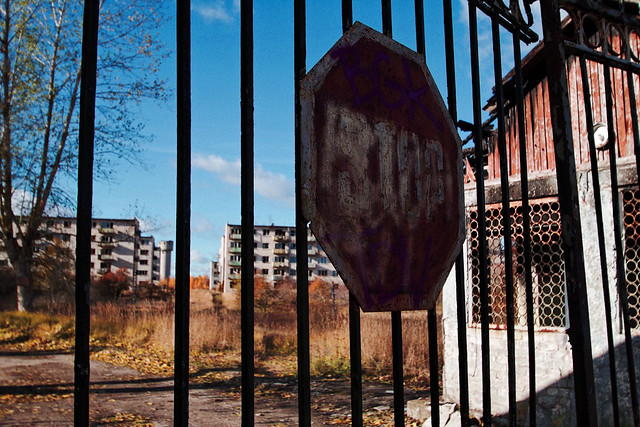
When the Soviet Union collapsed the Latvian’s held a dim view of Russian troops in their country, as you would as a newly independent people.
The Russians weren’t keen on leaving a major military RADAR station but history wasn’t interested and neither were the Latvians. Decades of oppression would test the best of us.
The Russian population in Skrunda drained away as fast as central Soviet rule. Not over night but in very large drips.
It was a standard Cold War town; watching for the missiles being sent to kill innocent communist children. It’s what they got told.
An absurd mirror faced by kids on both sides; both sides adding to their insane, world destroying armouries with gusto.
My generation grew up thinking the nuclear apocalypse was a distinct possibility. I now know, after visiting many Eastern Bloc countries, the same rumours circulated in Soviet schools and childhoods.
Whilst I was annoying my parents with music played too loud, my ‘iron curtain’ contemporaries were gathered around a record player listening to the same music; a smuggled, illegal print of a record pressed onto a used x-ray plate - ears pressed to the speaker, lest neighbours and then the police hear it. In the latter days the really ‘hip dudes’ had a cassette player to hide.
Skrunda was obsolete overnight. A disintegrating empire tries to protect the vital organs; the central power structure, the army, the police, then transport systems, the production and supply lines, on and on it goes right down to the minutiae of life. All designed and implemented to keep total control. It’s an ‘all or nothing’ game.
In retreat leave nothing of value or of any use. Skrunda’s School had a well appointed bathroom on each floor and every one had been smashed beyond necessary.
Far flung RADAR stations are an extravagance and quickly forgotten.
Skrunda Wild
Walking towards the town we used ready made animal trails through waist high grasses. Wild life is abundant in Latvia and wild boars have been known to wander the capital. Vicious swine’s they are too, when feeling threatened.
Latvia also has bears. Not enough to worry about. There are eleven of them. Yes, eleven. Latvian conservation websites are positive about this. It seems outlandishly precise as a number.
Eleven is not an estimate, surely? It’s a number. It makes it sound like they all have postal addresses and surnames.
Skrunda Mooch
The deserted town was alive with noise. Glass shattered unseen, always a street away. Doors in the distance slammed randomly in blocks of flats and unexplained, heavy thuds, added an edge.
Rushing gusts through paper yellow leaves sounded like static and became the background sound. The hissing swelled and subsided but never ceased.
Leaves cascaded over me as I stood underneath a shedding birch and turned to see the camera crew clicking like life may depend on it.
The town gym has a rotten floor. It has heroic Soviet murals on the walls; the athlete, the weightlifter, the marksman, the wrestler. Wind whipped in gusts through the building and the ceiling began to collapse behind us in places. Hearing the tearing and dropping of debris, we hot footed it out of the front entrance.
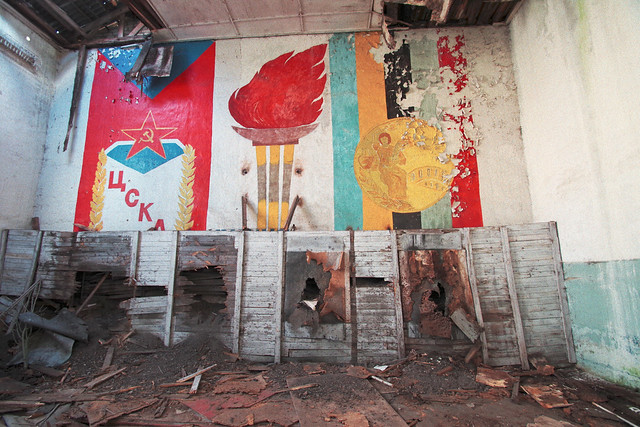
Soviet Steps
Next was the school and the ‘Soviet steps’ test. We’d been told that the Soviets, in a daft rush to efficiency, had ergonomically angled each step on public building stairs here, so that they tipped you forward a little walking down them. This, so they said, made you walk more quickly to compensate for the tilt. Makes you move more quickly, get more done, so they said and claimed with a straight face.
So they said. What a bunch of joyless bean counters.
I thought this was all propaganda and a load of old bull. I was wrong. It is true. You can feel it when you walk up the stairwell in the school. Ascending takes a little more effort than it should. Descending them takes effort to not break into a trot.
Some funster thought that through. What a sinister little bastard.
School Guns
Each floor of the school had a large room at one end, fitted from floor to ceiling with school regulation gun racks. Like a cloakroom in a regular school but for guns, not coats. Like Military school. There was an instructional poster board, informing conscripts how to care for their boots.
All rooms had been completely stripped of any signs of a prior life. The whole town had been emptied to the last detail. They had even taken their litter. When they left, they were very thorough.
Don’t Panic
Leaving the school I was stopped suddenly. Darmon grabbed my coat and motioned silence. We walked very quickly alongside blocks of flats.
“The police are here. They’ve blocked the entrance with a van and two of them are looking around.”
The wind rushed and subsided only to gust again. We dashed between buildings. As a group we walked down the town main street hiding in plain sight, keeping concerned eyes on street corners and high, broken windows.
Quietly entering another building we headed upwards, the better to see their van and possibly their route. We had no idea of their motivation, attitude or intentions.
Lying low in a theatre we saw the mosaic of Lenin; before tip toeing across the collapsed floor and around the wild boar shit in front of the stage.
The police got bored and left. After a sensible gap, we followed.
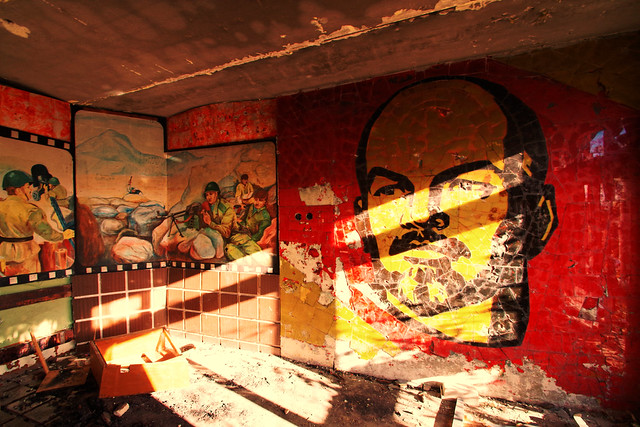
Skrunda to Kuldiga
It was a long drive and we made good time along straight, empty country roads, through a painter’s landscape. Flat farmland spread out on both sides, constantly backed by distant, thick forest.
Silver beech forests slowly revealed their winter skeletons, gust by gust; the evergreen fir’s pined, hidden within the ranks. Winter threatened the edges of the landscape, hesitating, not quite ready to invade.
Roads were mostly sealed and a dream to drive; long and straight through low, harvest bare farm fields and spectacular autumn forests. It was the advert for autumn that no computer could recreate. High definition, immersive TV has a long, long way to go.
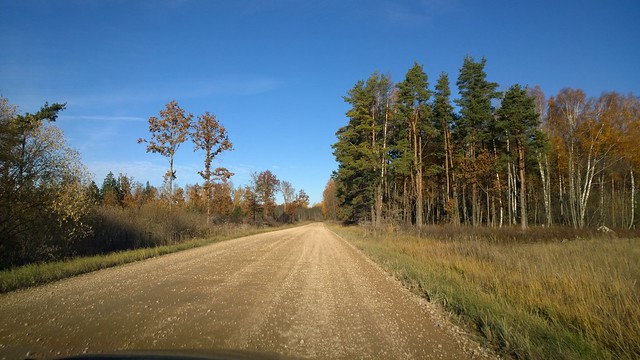
The vast forest encroached in places, up to the road. An enormous, golden brown eagle lifted slowly from telephone lines on impressive, slow spanned wings, clearly scoping the area on invisible updrafts from the fields.
On the left, a large flock of small, dark birds reacted, taking off in an astonishing, synchronised flock launch. They twisted and turned on a sixpence and, like a school of aerial fish, arced over us then abruptly darted down into the low lying black fields.
We exited an arch of trees whilst they shed an autumnal palette of confetti tumbling through myriad shafts of golden filtered sunlight across our windscreen.
Above, our Baltic skies were blue wash, with the lightest frosting of unblemished white cloud.
Rural Latvia
On a long stretch through no signs of habitation, we saw a very old woman dropped off by the local bus on a road to nowhere, miles from anywhere. She wobbled off, bent over with shopping and determination. I can only imagine that she lives underground. There were no built destinations, nothing man made for many flat miles. Where was she going? We’ll never know.
At the desolate bus stop a guy in a t-shirt, in Baltic October, waited with his chainsaw hanging from one hand. Angry Ivan stood immobile as the bus pulled away. He didn’t even look up. He must’ve been waiting for the next bus, angrily, with his chainsaw.
Occasionally, the road was unsealed; a packed hard clay, a billion small stones and the unavoidable fist sized rocks. Four feet deep drainage ditches lined both sides, for ploughed snow and the inevitable thaw next year.
We barrelled through the landscape consulting sat nav directions and camera shutters whizzed and clicked.
Mid forest, without warning, the smooth tarmac ceased and the car wheels caught nothing but air before crashing with a bounce or two onto a section of the aforementioned clay track, a foot lower. The car fish- tailed tightly on landing.
Northern English exclamations were sworn as Frag, gurning in effort, held his nerve and steadied the ship, righting us back into a straight line through the forest.
Evening Stroll
Kuldiga is a mediaeval town. It has an ancient church, ramshackle wooden buildings, tiny town squares and a river running through it. It’s a quiet, quaint, interesting town as the sun goes down, in a Hammer House of Horror manner. You know the clichés.
We decided to stroll around the local area in search of food and beer. Frag and Tbolt pottered down the cobbles in front of me. The streets were deserted. Corners of winding lanes began to harbour shadows.
Lagging behind I saw a two story wooden house, with a balcony framed into a perfect picture between main street buildings. It looked like the Middle Ages and needed remembering.
I veered off to the left to have a nosey, proper look. The timber frames bowed heavily at the windows looking like they might burst and the eaves overhung the street. They were of a greying black wood only created by great age. Around the front I found a drab, modern cul-de-sac square. A very odd juxtaposition but proof it is a working, living town, not a heritage museum frozen in time.
A beautiful town with parks, ponds and statues, an old brick bridge led over the inevitable babbling brook. The architecture was pre-Soviet meddling, lending an individual atmosphere for a Latvian town. It was ornate and had tradition and a respectable air to it. No concrete or straight lines and strict right angles. No function over form - a peaceful, old place settling down for a mild autumn night.
Follow the Light
Turning back, I retraced my steps to find I had no idea where I was. Twilight became night and street lights began to illuminate wonky, muddled lanes and prim squares.
Early days, no panic, no problem, walk on.
One of us had to get lost to give the village’s axe wielding lunatic a chance. Since I had no inkling as to where I was or where to go, I volunteered to be victim number one. I thought that the town was so small that by continuous walking I’d recognise something, denizens would take pity on this idiot and all would be well.
Not a bit of it.
I enjoyed the feeling of being lost, at first. I wandered unconcerned, past ornate stone civic buildings and small windowed housing, the second floors with comfortable lamp light casting out over the narrow streets.
I passed local children playing; they stopped their chatter and games and stared at me, wandering and lost and stupid.
After an hour, I met a Latvian dumpling shaped woman walking in the opposite direction in a dark, cobbled alley way. I was utterly lost. She stopped and stood rigid, eyes wide in obvious fright of me. I smiled and attempted to continue but she was eyes-wide scared, frozen to the spot and looked like she may begin screaming.
Then I would be in real trouble. It would look so bad, I could see that. I’d done nothing wrong but that all felt irrelevant under the circumstances.
She was frightened to the point of soiling herself and could come out with anything when questioned. Innocence and guilt may well be amorphous concepts in rural Latvia, depending on the town, the time, the situation and none of this was on a stranger’s side. Explaining being lost in a strong Northern English accent would help in no way. Nobody speaks English in rural Latvia anyway. Why would they?
A Latvian gaol cell flashed through my mind. A night with the local axe wielding lunatic, it could be bus stop Ivan, the cell mate who likes chainsaws and cuddles. Oh, Dear Lord, may I disappear into the ground - or get away quickly around the corner and don’t stop walking, head down, for quite some time.
I backed away with my hands up, “I mean no harm. No harm. No problem. No problem.”
She was shaking as if she may lose it at any second. Oh God, what have I stumbled into?
As I backed around the corner I realised that ‘lost’ was not a good idea in Kuldiga and may be very unsafe if the town’s people turned out with pitch forks and burning, wooden torches.
I’d spread enough alarm by trying to find my way, in roads and streets and alleys all melding into one maddening circuit of confusion. I’d had enough. It was raining and I wanted shelter with food and beer.
In sheer wild card desperation I texted the chaps,
“I am completely lost, any ideas?”
Tbolt, the practical engineer, had a suggestion in reply to my SOS.
“Look for the police radio mast, red light on top.”
He was right. The police radio mast was a good hundred feet taller than the highest building in town. I found open ground to see the high mast.
Red light on top, it beckoned me to safety, only half an hour’s walk away, through a maze.
Welcome to Lithuania
Latvia and Lithuania have no discernable border between them. The only clue we’d crossed was a phone company text, reminding us what century we were really in.
Hamlets in the middle distance announced Lithuania with their idiosyncratic twin church spires. The farmland margins had wooden, World War Two watch towers.
The Hill of Crosses
Nearby towns are tiny, dice throws of houses in the three horizontal bands - blameless blue sky, distant dark forest and black furrowed fields.
The hill doesn’t look much from the road.
It looks inconsequential, more of a bump in the vast, flat landscape than a world famous pilgrimage site. We arrived shortly before sundown. A fat, blinding, orange sun hung heavy over the fields behind us.
The cameras began to prepare for a snapping frenzy. I walked straight to the top of the hill.
The history of the place is long. Nobody knows how it all really started. Rebellions occurred throughout mediaeval tumults. In the 1800’s the local population repeatedly rebelled against Tsarist rule.
Massacres ended the rebellions. Lacking bodies to bury after the hacking was done the locals placed crosses on what was a hill fort in day’s past. This tradition caught on and was added to during the Second World War. It became a symbol of defiance against all oppression.
When Soviet rule arrived they took a dim view of religious expression and banned it. They bulldozed the hill flat. The hill was rebuilt by night and the crosses replaced. They destroyed it again and it reappeared. This was repeated in a cycle throughout the Soviet years. When times passed and Soviet rule subsided, the hill became a pilgrimage destination for the Catholic faith.
The crosses began to be added daily in vast numbers. Some are no bigger than your thumb. Others would tower over your house. Statues of Mary and huge carved Jesus on The Cross stand sentinel at the end of a long, paved path. It is a remarkable place, a testament to hope and defiance.
Even this atheist could see that.
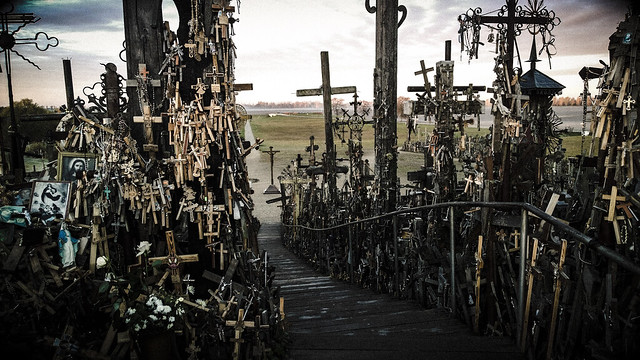
The photo’s and films on the internet do not prepare you for the spectacle. An estimated 250, 000 crosses crammed onto a small hill of remembrance. Everyday, hopeful pilgrims hammer more crosses into the hill; satisfying their beliefs and the trinket sellers hawking tat in the distant car park.
I walked up through close passages between the crosses and the sun went down. An enormous full moon rose quickly to pose over the scene. The photographers tried to suppress a joint squeal at the perfect timing - a gothic photo heaven, to order.
The countless crosses and effigies, backed by a glorious harvest moon, were a memorable sight. I walked through slim passageways through the conglomeration and absorbed the atmosphere.
The last thing it is, is spooky. It exuded a calm, reverential air. It’s a very strange place indeed. I liked it. It seemed a good thing. I liked the idea of the rebellions it storied and the hope and calm defiance in the face of adversity it demonstrated.
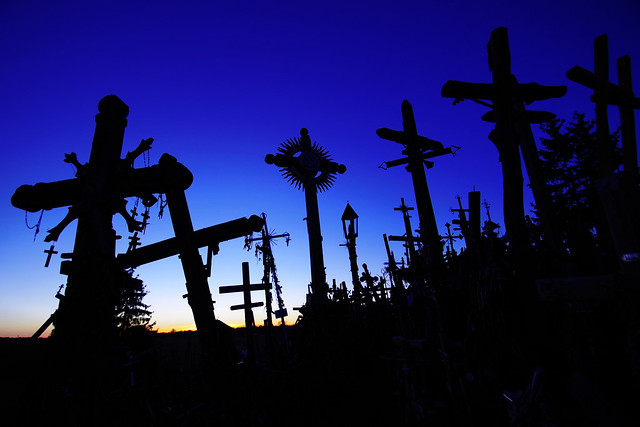
Lithuanian Last Orders
Back at the hotel they closed the bar at 9.10 pm. There were only a sprinkling of customers and we were four of them. We were quiet, civilised and spending at the bar.
We retired sulking, feeling our hosts had underestimated how thirsty a quartet of Englishmen can be. No self respecting bar would close whilst there were punters with money and manners.
How many great anecdotes begin, “We were the only people in the bar and…”
Bloody load’s of them. That’s how many.
Dvina Nuclear Silo
We drove through the landscape and followed the fighting sat navs. The long, straight empty roads made it easy. Ignoring the signs for the town of Plunge (the concept was worrying) we concentrated on tracks through the forest on either side of the road. Wherever we were going was not obvious or well travelled.
With Tbolt at the wheel we turned onto a mud track. The rutted track wound through the forest for miles and he pressed on.
Occasionally the forest revealed a steep roofed house, hidden from the world. They must live a strange, sylvan existence, lonely and isolated.
Tbolt was not a happy driver through the forest but he pushed on regardless. Whilst doing a sterling job under the circumstances, he had a salient point to make.
“Is this the right way? If it’s not, let’s face it, we have no idea where we are or where we are going. We can’t turn around, the wheels are stuck following ruts. I’m just guiding and steadying. We are snookered if this isn’t right.”
A good point well made and drowned out by giddy chaps refusing to take the prospect seriously.
“It’ll be reet, keep pedalling!” was not helpful.
Tbolt, as doubtful as he was, skilfully delivered us to a nuclear missile silo in the middle of the deepest, darkest forest in Lithuania.
Form over Function Mystery
Spilling out of the car, we needed to drop off this morning’s coffee. In a clearing in the deep dark forest was a visitor centre. It looked like a featureless iron brick with a glass door to enter.
Outside, we spied the W.C. sign and I followed. It led to another identical sign pointing down the side of the building. I followed and found no toilets, just the smooth iron wall of the building.
The iron wall at the back was stained with many fetid arcs of dried piss; relief of the masses after a long, uncertain drive. I had waited long enough and needed to add to the collage. You can take the boy out of Bolton but you can’t take Bolton out of the boy. It was odd but so was everything else.
Secret Silos
The missile silos are fantastically isolated in the vast forests of Lithuania. The Soviets built them in top Cold War secrecy mode in the 1960’s.
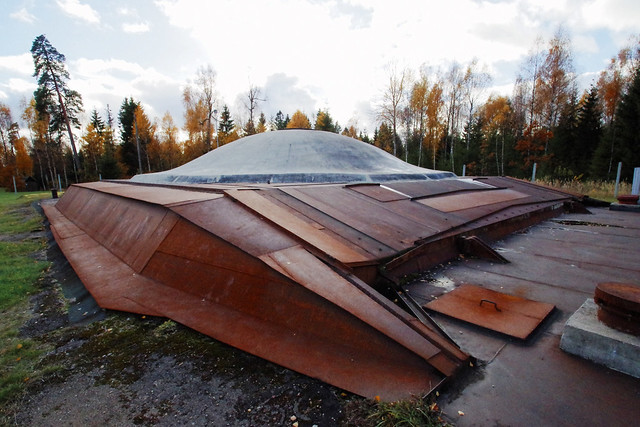
Very small teams of soldiers were taken into the forest by night. They dug it all out with spades because machinery would attract too much attention, even out here. Each team had no inkling as to what they were digging and constructing.
A warren of control rooms were built underground, to control and guard the facility. A real Cold War weapon of a site, built to defend them and destroy their enemies.
Depending on which side of the mirror you stood.
It was on a ‘need to know’ basis and the inner circle was tiny. The USSR hid this one, completely, for years. The silos were built to house and launch new, mid range nuclear missiles. Designed to destroy cities and vapourise the citizens of Western Europe, the missile was top secret and the location never to be discovered without satellites.
It is surrounded by security fences impossible to penetrate without detection. Movement sensors, barbed wire, razor wire, electric fences, all constructed in a web of circles, guarded 24 hours a day by soldiers ordered to shoot on sight. The surrounding forest is seemingly endless.
As a guard it must’ve been relatively easy in the summer. In the dark months of winter, at minus 20, in knee deep snow, a slicing wind and wolves howling in the forest, it must have been the worst posting a conscript could imagine.
It remained unknown until the US photographed it; found by the finest spy satellite technology the 1970’s had to offer in a very different age.
Weapons of Mass Disappointment
Descending two stories into the silo we walked around low, grey corridors with submarine-like sealing doors between each section. It was not a big place.
I was picturing Bond villain expansive underground headquarters; all piranha pools, henchmen (and henchwomen) ferried around in golf carts, shark tanks to throw enemies into, lasers to slice off bits of British spy and a high tech map of targets on a giant screen. A giant, self important leather chair would swivel, revealing a face scarred villain lounging and plotting the world’s destruction, in a vaguely Eastern European accent.
The truth was that it was claustrophobic and grey and dull. Frag launched his own gas attack as we made our way through the gun barrels of our once potent nemesis. The only potent parts now were Frag’s dreadful emissions. Unfortunately all gas masks were now displays.
Break glass in emergency, I read that somewhere.
Conscript postings here must have been very tedious. In an empty room, they were ‘Waiting for Godot’ and he never arrived, hence you’re reading this.
Both sides of the mirror spent uncountable sums on espionage. Frag proved his ability to empty a nuclear missile launch site, armed only with a dodgy supper leaking from him. It was touch and go for a while but Tbolt, Darmon and I survived.
The Cable Guys
The cable guys, as I shall call them, had one of the most important jobs in the USSR. They were waiting for the signal – a first strike or retaliation. They were ready and waiting. Either way the missiles would have been launched and I would not be writing or you reading.
As aforementioned the base was the top end of secrecy. Extreme paranoia seeped through the whole operation. This was the new secret weapon and nobody could know that it was festering here in the forest. Secrecy was the word.
The solution was a reminder of the world before computers, mobile phones and the internet.
They had a cluster of wires shrink wrapped into black plastic pipes to make wrist thick cable with a round plug on the end. It was the original cable. A foot away an identical cable lay with a round plug socket on the end. This was the secret communication wire direct from the Kremlin, there to play out doomsday.
They couldn’t keep the two cables permanently connected. They were concerned that this would lead to detection. It was based on the phone system which was easily spied on. Hence the plug and sockets end, in this grim room.
They had a regular phone on the table just above the cable ends. In an emergency, the Kremlin would call it and tell them to plug in THE SECRET CABLE FOR THE SECRET MESSAGE.
Then they would send the order to Nuke The Bastards!
Russia’s most secret order had to be phoned ahead on old phone lines, so that they could plug the secret cable together, to send the secret message they announced they were about to send. Brilliant. You’ve have to love the shambles of it.

Form Over Function Mystery Solved
Walking back towards the visitor centre we saw a family with young children arriving. Mum began to follow the WC signs. We hung around to see how the search would end.
She followed the signs and disappeared around the side, we all looked askance at each other. This won’t end well, we agreed. She emerged a minute later, from the opposite end of the building, shrugging in puzzlement.
In a stroke of genius, she entered the visitor centre to enquire into the mystery. She emerged with a member of staff who purposefully went around the side of the building.
She put both hands against the side wall and a giant iron screen moved to one side, revealing his and hers toilet doors behind it.
Judging by the rancid arcs across the back of the building, it was an extensive, international group of chumps with full bladders and no common sense, I’d joined. I’ll not be joining hands in solidarity until each man washes his hands thoroughly in boiling bleach. Dirty boys.
Stalin Meets Jonny
Tbolt piloted us back down the forest track towards the Hotel Plinksiu.
Crazy name, crazy hotel.
It’s not there owing to demand, nobody ‘demands’ to go there. A brutal blot of architecture in the centre of nowhere doesn’t feature in many holiday plans.
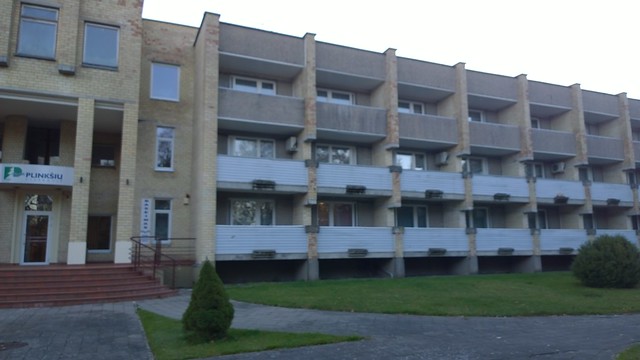
The powers ‘that were’ decided the workers needed some fresh air and then manufactured a hotel to go to. In the middle of nowhere, with no amenities of any stripe within range without a helicopter, it is a Stalinist block at the end of a lost mud track.
Inside it was a dead ringer for the hotel from the film, The Shining. All endless, half lit corridors lined with identical doors and mirrors. There were only us four and two Russian lads in the entire place. It was dead.
We were safe from the forest’s beasts in the dark hours. They were all frightened away by the fierce noise that Frag made all night.
A Ridiculous Breakfast
I arrived to bemused smiles from Tbolt and Darmon.
“Do you want the good news or the bad news first?”
“The good news is that the breakfast is okay.” said Darmon.
“The bad news is that none of it is for us.” chimed Tbolt.
The hotel receptionist had stopped them from eating the two breakfasts laid out, half way through eating. Now she was nervously apologising. They had been eating the Russian lads’ breakfast. Darmon carried on eating, regardless.
Tbolt asked, “It’s only egg salad. Can you not knock some more up?”
“Man in kitchen not here.”
I was incredulous and most put out. It was too much for me, first thing in the morning. They only had the six guests in two hundred rooms. The TV, lamp and shower in the room didn’t work properly or, in the case of the lamp, at all. They hadn’t made our breakfasts. They had allowed my colleagues to gnaw at the two they had made for the Russians, therefore ruining theirs too. I couldn’t contain myself at such mind blowing incompetence.
“This is bloody ridiculous!” I snapped at her. I then stomped off in a state of high dudgeon.
We weren’t finished yet. On checking out we tried to get coffee from the machine in the reception. There was no water in it.
“Can we have the coffee machine re-filled?”
“No. Not possible.”
Frag needed to buy cigarettes. A twenty pack was produced. Frag whipped out Ten Euros. There was not enough change in the building. He tried to buy all the cigarettes they had. The whole carton was produced. There was still nowhere near enough change.
As we started the car to leave, the two Russians, never the sunniest of chaps at the best of times, sulked heavily as they loaded luggage into the van next to us.
No potato for Sergey.
Sabile, Latvia
There was an old woman of Sabile,
Who stitched together gnomes a great deal,
When asked, “Why do you do it?”
She replied, “Oh Hell, screw it,
It’s either that or I’d die at the wheel!”*
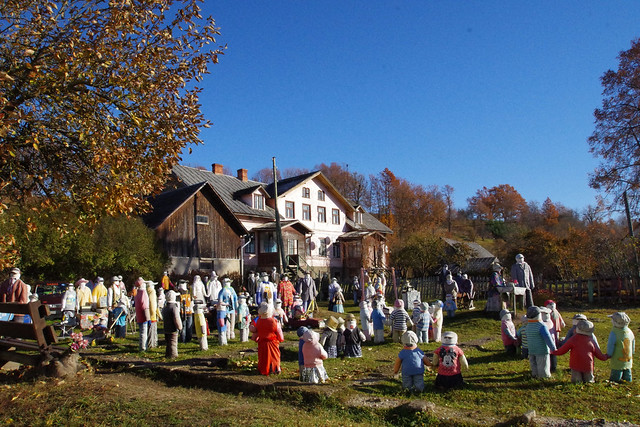
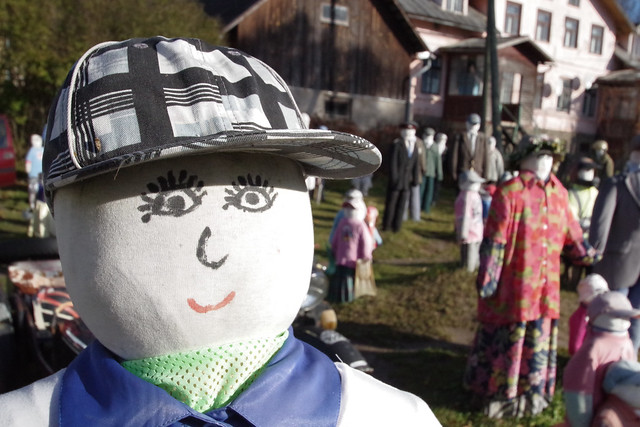
Salaspils Detour
Ending our jolly boy’s tour of Latvia and Lithuania we were in high spirits and ready for a grand night out as a crescendo. Darmon had insisted on a stop on the way into Riga. We passed a huge sculpture of a hand extending like tendons over the ring road around the city. It is there.
We indulged him and I am so glad that we did. I pulled into the car park in the forest, next to a gothic house surrounded by a grave yard.
As we made our way towards the memorial ground conversations ceased and we drifted away from each other towards our own experience.
Darmon was sure that we should visit the Nazi concentration camp memorial in Riga.
My mind jumped to a visit I’d made to Auschwitz, years earlier. The stain will never leave me.
Salaspils Concentration Camp
We fell into silence as we walked through the woods towards the expansive memorial. Not a word was spoken in all the time we were there. Not a word.
An enormous wedge of concrete announces the entrance. A carved list of numbers on the side could only mean one thing. I couldn’t read the script but the numbers carved there told their own story. They all had six figures.
The memorial ground is the camp grounds. It is a vast clearing amongst the trees. A bass heavy heart beat pounded, low, insistent, inescapable. Birds screamed their calls from the forest surrounding; the heart beat following wherever I wandered. You can feel it as much as hear it.
Sky high sculpted figures bunched together, dwarfing us and guarding over the tainted ground. Giants that remain now the evil is dissipated.
It was peaceful, until the silence was broken by a guard dog snarling and barking in the distance. Then, the sound of a clattering train, it was always a train. The sun of the day started to fail. The waves of misery and horror are still there, in that clearing. It was like drowning in sorrow.
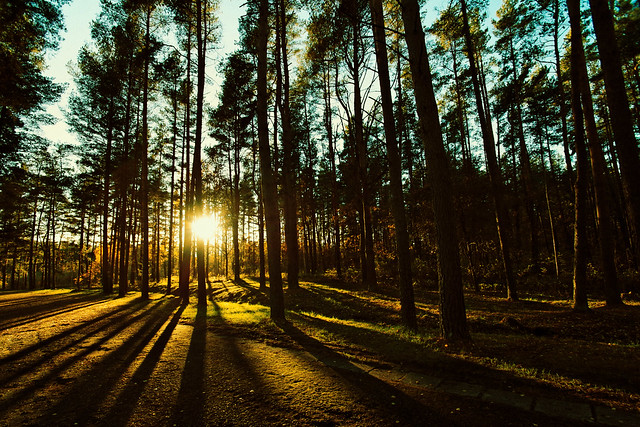
I left. I’d had enough. The chaps walked with heads down back to the car, only a minute behind me. We were all in shock. We didn’t exchange a word. What an awful, beautiful place.
Riga 2
Stunned, we drove back into Riga to find the final hotel.
As we hit unforgiving rush hour with trams, trucks, taxis, commuter cars and no room for hesitation or idea as to right of way, we began to bicker. The conflicting advice firing across the car infuriated me.
“Go left, right! Not now, back there!”
“It was left onto the ring road.”
“Right, into that side road, not now, next one. No, hang on, take the next left.”
Buses undertook, vans overtook and trams threatened to slice the car in half from both sides.
Everyone had the right idea and no idea all at the same time, as to the lane to be in, U turn to throw, turn off to ignore and then the next one to be taken. They were worse than Corey the surfer sat nav that began the trip.
“Stop it! Stop it all!”
I was being over loaded by directions and worse still, opinions. They are not helpful in moving traffic on ‘the wrong side of the road’ at rush hour on an unknown road system.
I made a stand. “You tell me one list of directions, in order, and I’ll keep you and the car safe.” I may have raised my voice, slightly.
Our fractious group settled. We began to work for each other again. Frag gave directions ahead; Tbolt was rear view and side threat watchman.
“Turn left, next slip road, it’s a 40, drift lanes to the left on exit, towards the traffic lights.”
“Clear behind now, move left one, stay in lane, tram coming through. Clear now, nothing coming.”
We were good. The directions were bang on, now. I was able to negotiate the rush hour madness, able to concentrate and negotiate a definite route. I didn’t get us killed in a car accident. Success!
Pulling up in the hotel car park, I threw the keys at Frag and he handed them to Tbolt. It was time to quit.
Mick Smith
02.01.16
*I know you don’t pronounce the town name Sabile to rhyme with deal and wheel but it scans, so there it is. Any arguments and you can make your own bloody limerick up.
